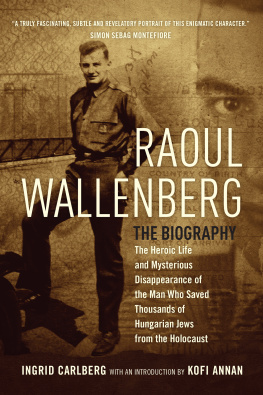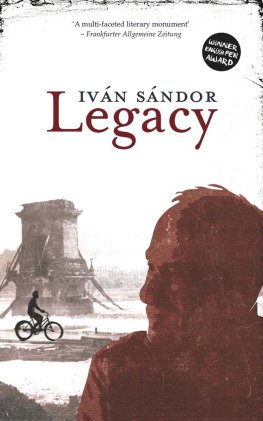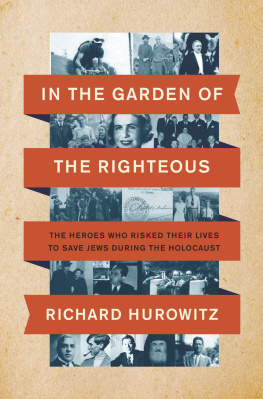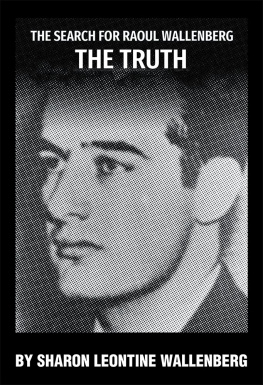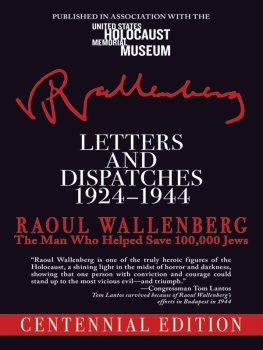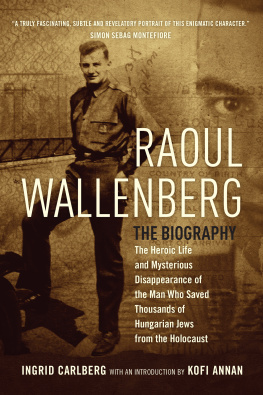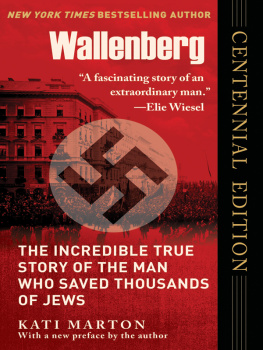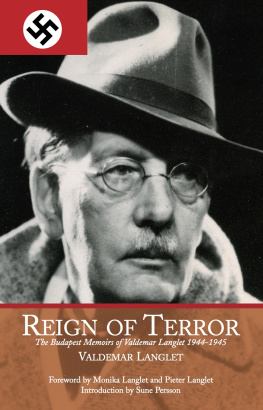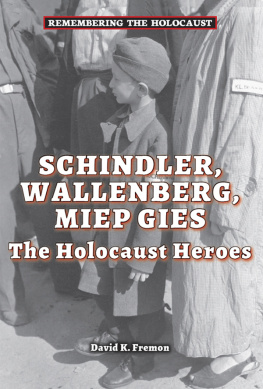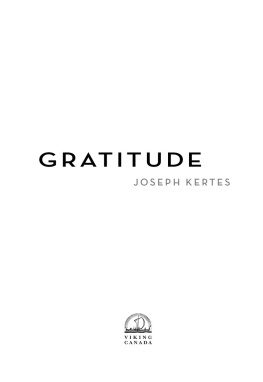CONTENTS
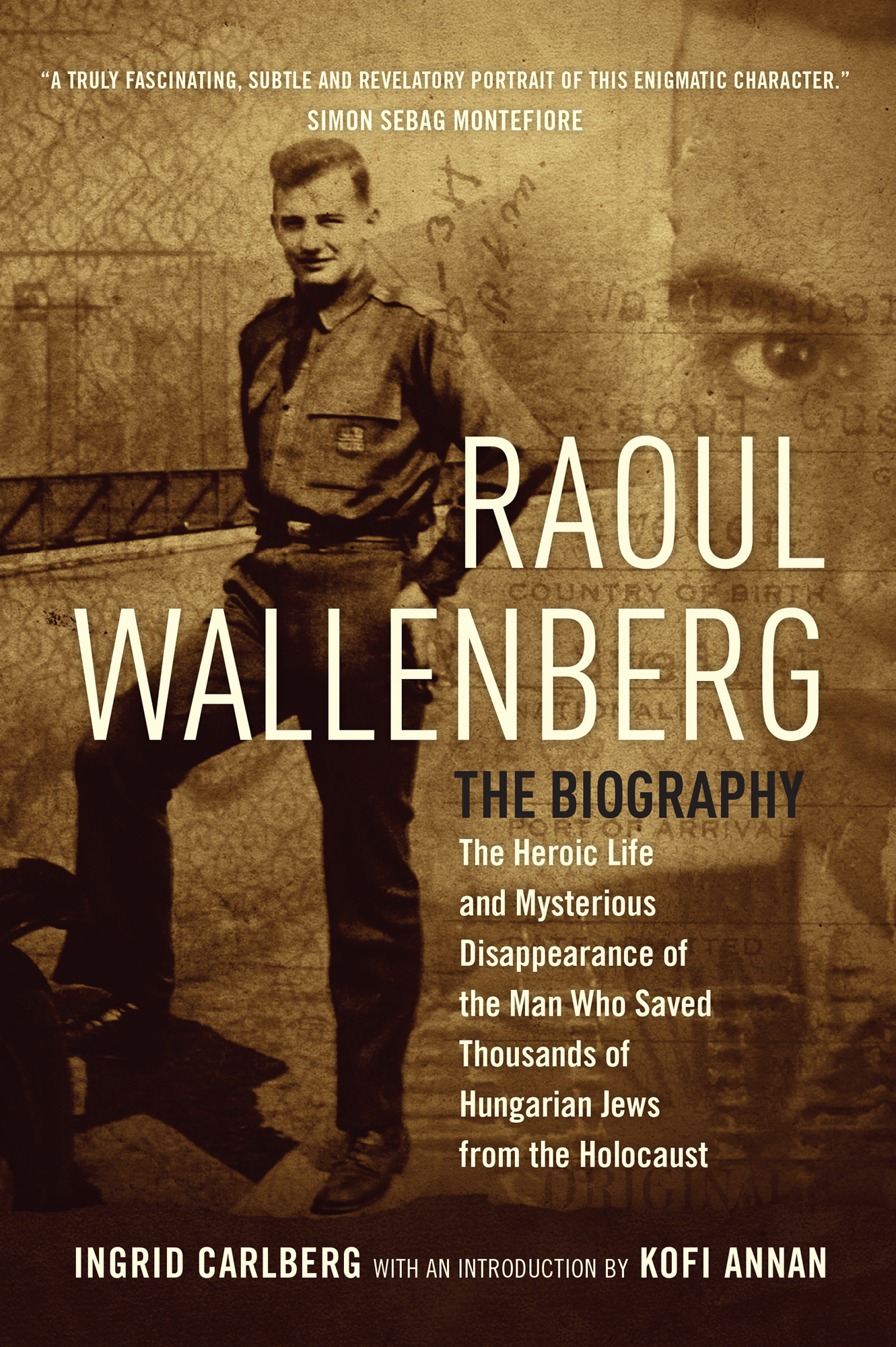
RAOUL WALLENBERG
The Heroic Life and Mysterious Disappearance of the Man Who Saved Thousands of Hungarian Jews from the Holocaust
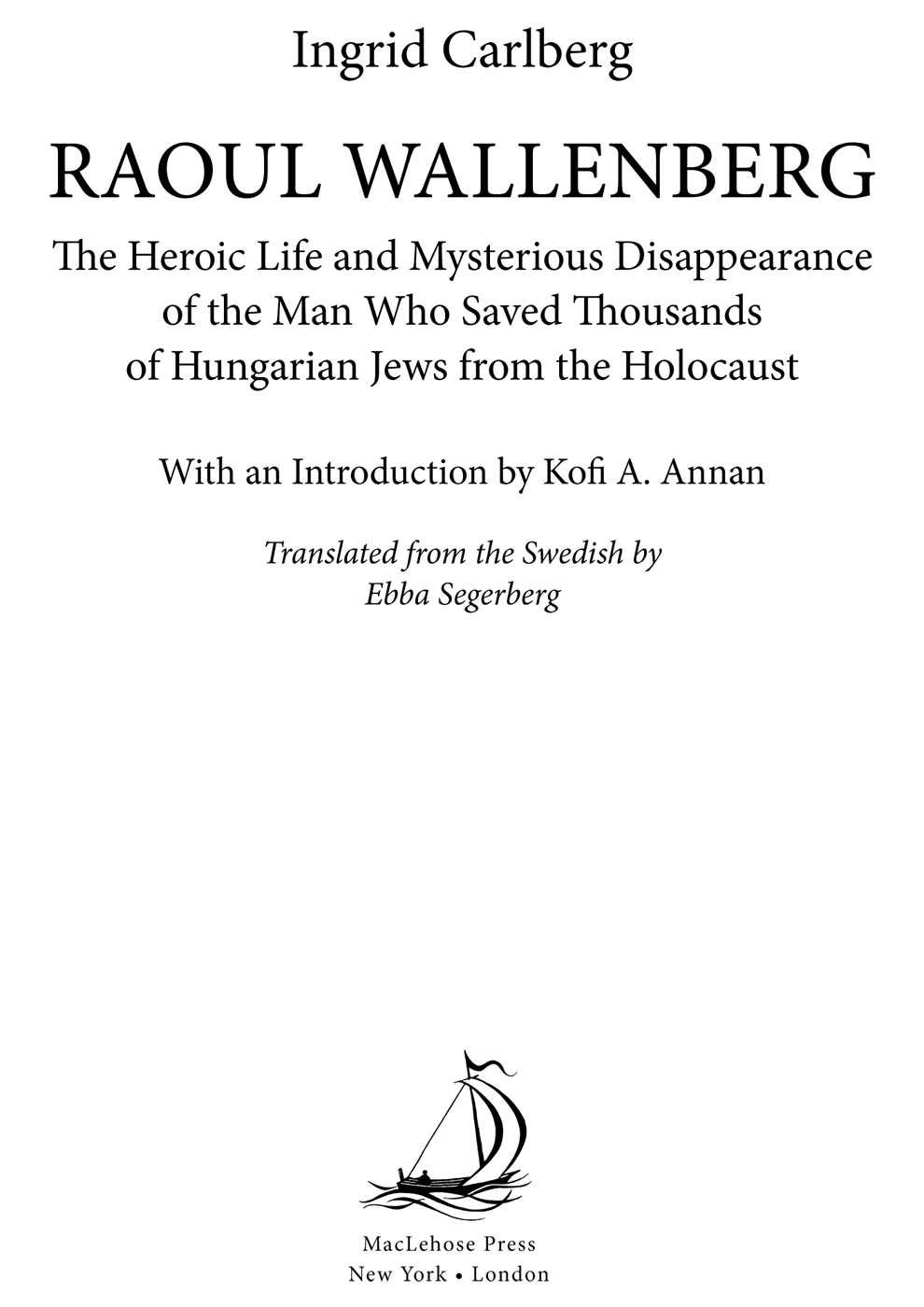

MacLehose Press
New York London
2015 by Ingrid Carlberg
English translation copyright 2015 by Ebba Segerberg
Introduction Kofi A. Annan
First published in the United States by Quercus in 2016
Cover design Phil Yarnall / SMAY Design
Cover photographs Private archive / Nina Lagergren
Part of the cost of this translation has been defrayed by a subsidy from the Swedish Arts Council, gratefully acknowledged.
All rights reserved. No part of this book may be reproduced in any form or by any electronic or mechanical means, including information storage and retrieval systems, without permission in writing from the publisher, except by reviewers, who may quote brief passages in a review. Scanning, uploading, and electronic distribution of this book or the facilitation of the same without the permission of the publisher is prohibited.
Please purchase only authorized electronic editions, and do not participate in or encourage electronic piracy of copyrighted materials. Your support of the authors rights is appreciated.
Any member of educational institutions wishing to photocopy part or all of the work for classroom use or anthology should send inquiries to .
e-ISBN: 978-1-68144-524-3
Distributed in the United States and Canada by Hachette Book Group
1290 Avenue of the Americas
New York, NY 10104
www.quercus.com
To my parents, Sonja and Per Carlberg
In this narrative of Raoul Wallenbergs life and destiny I have taken great care to adhere with absolute fidelity to the facts. There are no invented dialogues, and I have neither added fabricated scenes and details nor made any ungrounded assumptions about individuals motives or emotions.
The Swedish edition of this book was accompanied by 1,705 footnotes. In this edited English-language edition, those detailed references have been published online at www.maclehosepress.com/wallenbergnotes. Any reader who is interested in locating specific information or references for any passages in this book is welcome to consult the website, or to contact me directly at www.ingridcarlberg.se.
Be a door half-open
That leads to a place for all
T OMAS T RANSTRMER
Chair of the Kofi Annan Foundation, Nobel Peace Laureate and Former Secretary-General of the United Nations (19972006)
Then they came for the Jews, and I did not speak out
Because I was not a Jew
Then they came for meand there was no one left to speak for me.
These are the last lines of a famous poem by Martin Niemller, which has moved many of us to ask the most searching questions of ourselves.
Some individuals, however, not only spoke out but acted on their beliefs.
When Raoul Wallenberg left his native country of Sweden in July 1944 to pursue a temporary diplomatic assignment in Budapest, he was thirty-two years old and a relatively unknown Stockholm businessman. Those who knew him appreciated his creativity, his sense of humor, his unceasing energy and his superb organizational abilities. However, none surely imagined that he would become an international hero.
Today he is honored around the world for his courage and his historic deeds, because his actions in Budapest in the autumn of 1944 saved the lives of thousands of Hungarian Jews.
This is why Wallenberg is such an important figure for us all, not least today, when intolerance is once again casting its long shadow across the world. He demonstrated that everyoneregardless of position and abilitycan make a difference. He showed us that the struggle for human equality cannot be left to governments alone, or political theory. He understood that it is an individual responsibility and acted accordingly.
Unsatisfied with beautiful words or gestures, he sought concrete results, achieved by organization and cunning. Where others retreated before the impossible, he saw a challenge and sprang into action. He responded to the Nazi bureaucratic killing machine by forming one of the Second World Wars most effective rescue organizations.
By the end of 1944, when the bloody anarchy of terror had paralyzed Budapest, Raoul Wallenberg was employing hundreds of people in various office locations, delivering a wide range of services, from shelter, daily food rations and medical care to protective documents and security patrols. Raoul Wallenbergs title and position as a Swedish diplomat were clearly important, but it was his personal authority, energy and initiative that made the difference. He was not always successful in his rescue efforts, but he never stopped trying.
In January 1945, the Red Army reached Budapest and Raoul Wallenberg voluntarily sought contact with the Soviet leadership. He wanted to suggest a collaborative approach to saving the Budapest Jews and providing postwar aid. They responded by arresting and imprisoning him in the Lubyanka prison in Moscow.
He would never see his homeland again. The man who challenged one of the worst regimes in history, the German Nazi state, fell victim to another, Stalins Soviet Union. At the end, when he needed help there was no one to speak out and act to free him.
This award-winning biography presents for the first time the complete story of Raoul Wallenberghis life leading up to 1944, his activities in Budapest, and the tragic mystery of his fate that remains unresolved to this day. It is absorbing reading. Ingrid Carlbergs meticulous research brings the period to life and deepens our understanding of the man and his achievements.
In 1981, the United States named Raoul Wallenberg its second honorary citizen, after Sir Winston Churchill. He is also an honorary citizen of Israel, Canada and Australia. Named Righteous Among Nations by the state of Israel, in the summer of 2014 he was awarded the US Congressional Gold Medal for his heroic conduct during the Holocaust.
Raoul Wallenberg has deservedly received his share of international recognition. But it is imperative not to reduce him to the abstract glory of awards and honors. He himself would never have felt comfortable in the role of a hero. The best way to honor him is to remember him as a fellow human being who, in one of the darkest periods of history, found the inner strength and courage to act and save others, oblivious to the risk to his own life. Raouls example should continue to inspire us and future generations.
Although the Universal Declaration of Human Rights was borne out of the horror of the war, Raoul already acted in the spirit of its first article: All human beings are born free and equal in dignity... and shall act toward one another in a spirit of brotherhood.
We must remember that genocide begins with the humiliation of one man, not because of what he has done, but because of who he is. Let Raouls example also guide us in our daily lives and help us to stand up against injustice in all its forms. Wherever individuals are shunned, humiliated or hurt because they are different, scapegoated at work, bullied at school, or vilified in cyberspace, let us never be passive bystanders.

